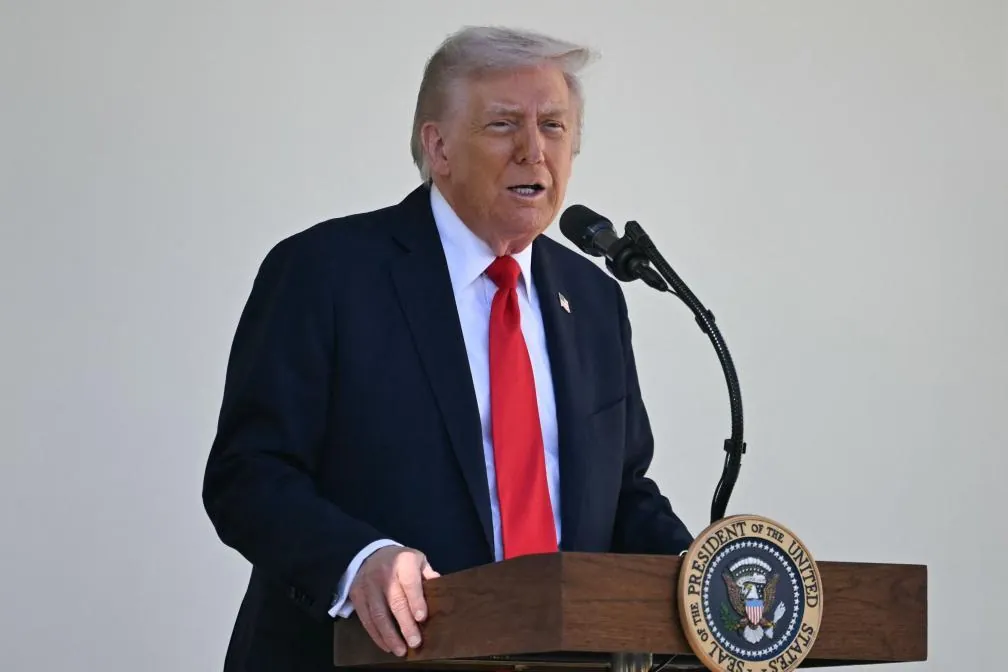Donald Trump and Vladimir Putin will not be meeting in Budapest. Not yet, at least. The White House confirmed this Tuesday through a high-ranking source, who explained that while Secretary of State Marco Rubio and Russian Foreign Minister Sergei Lavrov"had a productive conversation," "therefore, an additional in-person meeting between the two is not necessary." As a result,"there are no plans for President Trump to meet with President Putin in the immediate future."
The message is confusing. Last week, Trump indicated what the sequence would be: phone call with Putin, visit from Zelensky, meeting between the ministers in the coming days, and a meeting in Budapest between their leaders. No precise dates were given, but the feeling is that it would be in a matter of two or three weeks. And now, that chain seems to have been broken without any explanation, pretending that what happened is almost a normal consequence.
The last 96 hours following the meeting with the Ukrainian leader have been very hectic in Washington. After a reasonably friendly appearance between the two at the White House, the American press reported over the weekend that the meeting, which lasted more than two hours, had not gone as expected in kyiv and Brussels. Trump, repeating many of Moscow's arguments, reportedly pressured Zelensky along the same lines as at the beginning of the year, pushing him to accept the loss of all the territories currently in Russian hands. He even emphasized that, according to Putin, this is not a war, but rather"a special operation."
The messages in the capital also speak of a schism within the Administration, with real estate developer Steve Witkoff, the president's special envoy who has met with Putin several times in Moscow, the one pushing hardest in that direction. Meanwhile, Marco Rubio, the foreign minister with much more experience in international affairs, is said to advocate for a line less accommodating to the Kremlin's vision. Zelensky himself, back in his country on Saturday, could not hide his frustration with Witkoff, emphasizing how he has to repeatedly explain certain ideas to him and debunk the myths that the US envoy repeats, especially about the Russian-speaking, but not necessarily Russophile, population of Donbas.
Rubio and Lavrov have spoken by phone about next steps, according to a brief summary from the US State Department. Rubio"emphasized the importance of the upcoming engagements as an opportunity for Moscow and Washington to work together to advance a lasting solution to the war between Russia and Ukraine, in line with President Trump's vision," according to his team. But sources cited by CNN point out that there was no breakthrough, that the positions are very far apart. Furthermore, Lavrov has no mandate to offer anything. Any negotiation depends on the Kremlin. Meanwhile, Moscow defined the call as a"constructive discussion" that addressed "possible concrete steps to implement the understandings" that Trump and Putin reached in their own call.
And that's where the European leaders come into play, who, just as they did in the summer before the Putin-Trump meeting in Alaska, have hastily mobilized to put pressure on the US and have a very well-defined plan in advance, hoping to prevent the Russian, infinitely more skillful and experienced than the American, from fooling him. As they seem to achieve after each conversation, in the words of the former High Representative for Foreign Policy of the EU, Josep Borrell.
The European roadmap
This explains the 12-point roadmap that the Europeans, together with the Ukrainians, have outlined. It begins with the idea of freezing the fronts where they are now, just as Trump requested last Friday and as Zelensky seemed to accept. With conditions. According to this plan, advanced by Bloomberg, a kind of"peace board" would be created, which is the same formula that the Republican leader liked so much for Gaza. And this board, with him at the head, would oversee the steps towards peace.
Once Russia agrees to a cease-fire, and both sides agree to halt troop advances, the roadmap calls for the return of all abducted children to Ukraine and a massive prisoner exchange. Ukraine would also receive security guarantees, funds to repair war damage, and a path to early European Union membership. Russia, for its part, would see international sanctions lifted sequentially. It would not have access to its frozen assets until concrete agreements on war reparations were reached.
In these nine months, Trump has repeatedly stumbled. The possibility of postponing or canceling the Budapest meeting is just one more. At times, he talks about major sanctions against Moscow, about allowing Ukrainian attacks on major Russian cities. Or he contemplates selling it Tomahawk missiles, as he seemed to suggest in recent weeks. But at the same time, and without any concrete explanation, he praises Putin, says he wants peace, that they have a very good relationship, or attacks kyiv. Meanwhile, he organizes personal meetings or considers the possibility of three-way talks.

